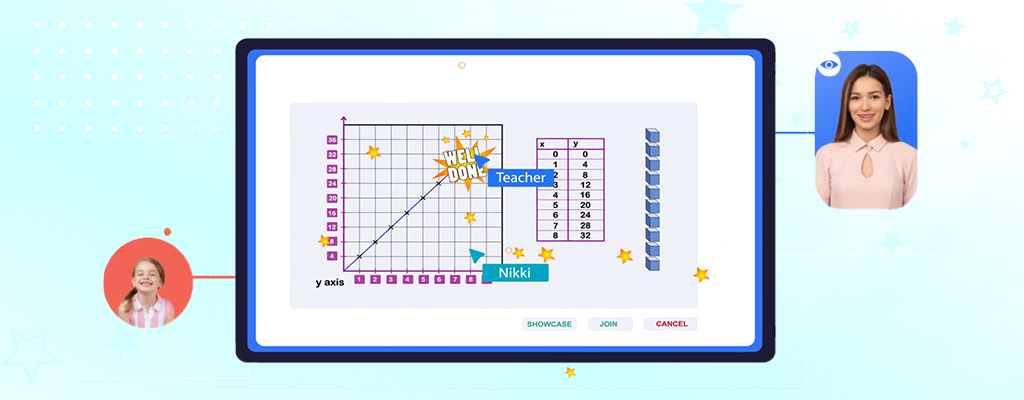
The year 2020 ushered in an unprecedented shift in education as we know it. The COVID-19 pandemic forced schools worldwide to pivot hastily to online education. Overnight, classrooms with their familiar chalk-dusted blackboards and face-to-face interactions transitioned into virtual spaces.
However, this change didn’t come without its challenges, something both students and teachers would agree with. The sudden shift disrupted the familiar cadence of teaching, exposing limitations in remote teaching methods, including connectivity issues, limited engagement, and the struggle to monitor individual student progress.
Amid this upheaval, technology emerged as the cornerstone of modern education. Video conferencing, online learning platforms, and a myriad of digital tools breathed new life into remote teaching. Their integration wasn’t just a response to a crisis but a transformative step that laid the groundwork for innovative educational methodologies.
Online whiteboards, born from the digital revolution, emerged as dynamic tools to facilitate interactive learning. Simply put, they are digital platforms or software applications that replicate the features and functionalities of traditional whiteboards — albeit in a virtual space. Accessible through web browsers or specialized software, they facilitate real-time collaboration among users, regardless of geographical boundaries.
These digital canvases offer a plethora of features: drawing tools, interactive widgets, image and file uploads, and real-time editing. Their benefits extend beyond the virtual world, enabling instructors to create engaging, multimedia-rich lessons that cater to diverse learning styles in remote learning environments.

Multiple users can interact simultaneously on the same board from different locations or work on their own individual board, fostering teamwork and engagement.
These whiteboards offer various tools like pens, shapes, text, and multimedia integration (images, videos, and documents) for a rich teaching experience.
Accessible from any device with an internet connection, making it convenient for both teachers and students.
Some platforms allow sessions to be recorded, enabling students to review lessons and providing a resource for absentees.
Whiteboards often allow customization of backgrounds, templates, and layouts, catering to different teaching styles and subjects.
Integration with video conferencing, screen sharing, file sharing, and other tools like calculators, editors, audio/video recorders, etc., makes the teaching process seamless.
Online whiteboards have broken the constraints of location in education, empowering teachers and students to transcend geographical boundaries. With these tools, individuals can engage in a seamless learning experience, irrespective of their physical location. As long as they have access to the internet, they have access to the best educational resources.
Online whiteboards serve as engagement catalysts, captivating students’ attention by offering an interactive and immersive learning experience. Real-time interaction with the material enhances comprehension and retention, fostering active participation in lessons.
Visuals are potent educational aids. Online whiteboards leverage this power, enabling educators to illustrate concepts vividly. The marriage of visuals and explanations enhances comprehension, making complex ideas more digestible and accessible.
The collaborative nature of online whiteboards transcends physical barriers. Students engage in joint brainstorming, peer-to-peer interaction, and group activities, fostering a sense of community and teamwork in virtual classrooms.
Online whiteboards empower educators to tailor lessons to individual learning needs. They facilitate personalized learning experiences, catering to diverse learning styles and ensuring inclusivity in remote education.
These digital tools bridge the communication gap in remote teaching. They enable clearer explanations, immediate feedback, and real-time interaction, strengthening the teacher-student bond and ensuring better comprehension.
Creating and disseminating educational materials has never been easier with online whiteboards. Educators craft resources effortlessly, incorporating multimedia elements, and share them instantly, enriching the learning journey.
It reduces time spent on manual preparation, as materials can be stored and reused, which optimizes teaching time.
A major challenge faced by teachers in online education is paying attention to each student personally. Addressing this challenge, online whiteboards allow real-time monitoring of each student's progress, fostering individualized learning experiences. Teachers can provide instant feedback and personally guide each student
Addressing accessibility issues and tech barriers is pivotal. Strategies such as improved internet connectivity, platform accessibility features, and device compatibility play a significant role in ensuring equitable access to online education.
Efficient use of online whiteboards requires proper training. Highlighting the importance of continuous support and training programs ensures educators maximize the potential of these tools.
The integration of online whiteboards has significantly altered the landscape of remote teaching, fostering engagement, collaboration, and personalized learning. This transformative impact lays the foundation for a future where physical and virtual boundaries blur in education.
As technology advances, the potential for further innovations in online whiteboards grows exponentially. Artificial intelligence integration, enhanced interactivity, better accessibility, and multi-lingual support applications represent just a glimpse of the endless possibilities in this field.
Excited to unlock the limitless possibilities of online whiteboards in your own educational journey? Discover the best free whiteboard for online teaching with whiteboard.chat. Together, let’s experiment and explore the potential of remote education in shaping the future.
 Try it Free (No Credit Card)
Try it Free (No Credit Card)